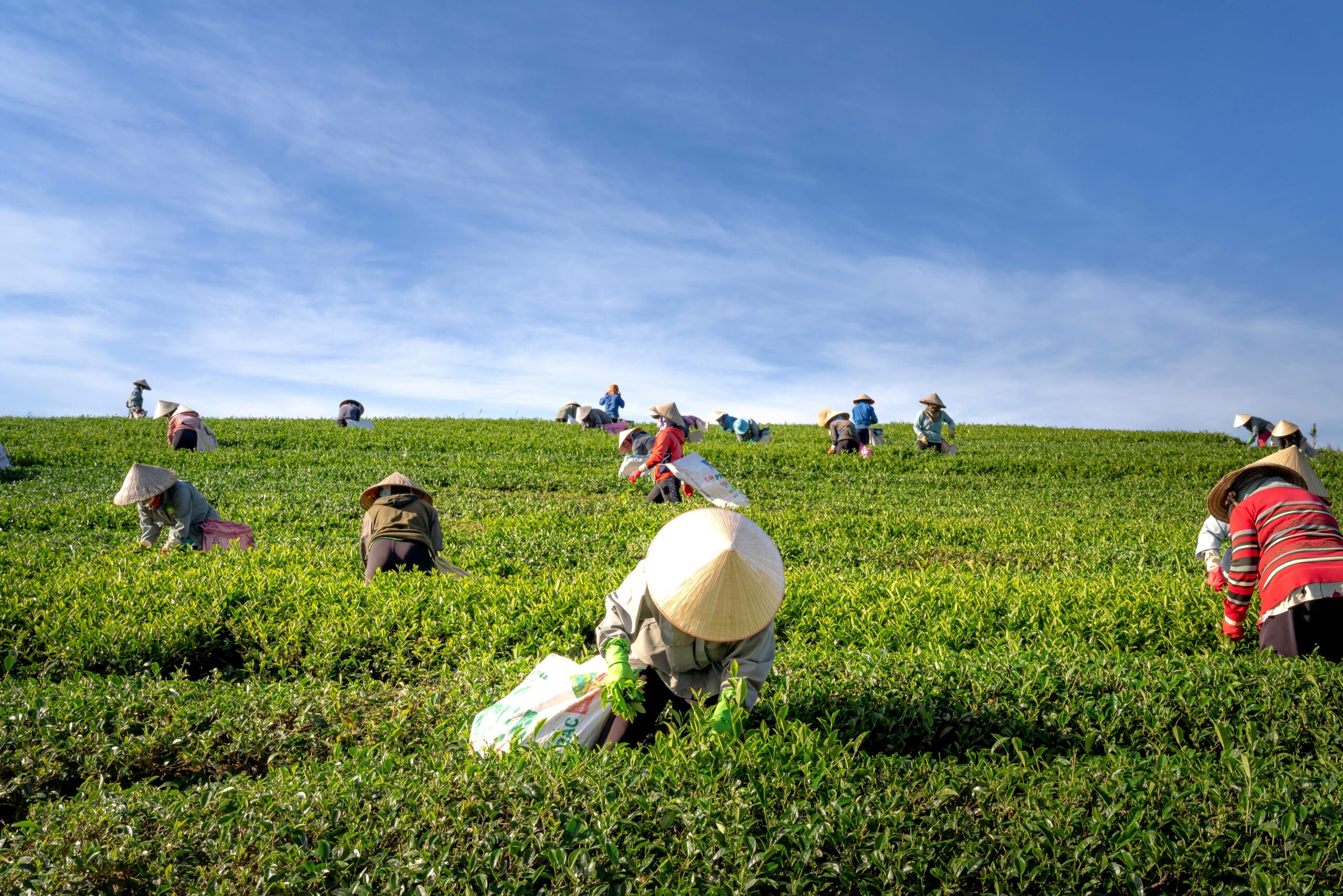Smallholder farmers play a vital role in global food production, yet their resilience often goes unnoticed. These hardworking individuals cultivate small plots of land, relying on traditional farming methods to sustain their families and communities. Despite facing numerous challenges, from climate change to market fluctuations, smallholder farmers continue to nurture sustainable agriculture. In this article, we will explore the untold stories of these resilient individuals and shed light on their crucial contributions to our food systems.
The Importance of Smallholder Farmers
Smallholder farmers, often referred to as subsistence farmers, are the backbone of global agriculture. These dedicated individuals cultivate small plots of land, typically less than two hectares, using simple tools and traditional farming methods. Despite their modest scale of operation, smallholder farmers collectively produce a significant portion of the world’s food, especially in developing countries.
1. Food Security
Smallholder farmers play a crucial role in ensuring food security, particularly in rural areas where access to markets and imported products may be limited. By cultivating a diverse range of crops, these farmers contribute to a more resilient and varied food supply. Their dedication to local production reduces dependence on external sources and mitigates the risks associated with global food price fluctuations.
2. Preserving Biodiversity
Smallholder farmers often employ traditional farming techniques that prioritize biodiversity preservation. By growing a wide variety of crops, they maintain a rich genetic pool and protect against the loss of specific plant species. This biodiversity is not only essential for ensuring a resilient food system but also contributes to overall ecosystem health.
3. Sustainable Agriculture
Smallholder farmers are known for their sustainable farming practices. With limited resources, they prioritize organic and agroecological methods, minimizing the use of synthetic inputs and promoting natural pest control and soil fertility. By relying on traditional knowledge and locally available resources, smallholder farmers contribute to the long-term sustainability of agriculture.
4. Rural Development
Smallholder farming is often the main source of income and livelihood for rural communities. By supporting small-scale agriculture, governments and organizations can help alleviate poverty and promote rural development. Investments in infrastructure, education, and access to markets can empower smallholder farmers, leading to improved living conditions and vibrant rural economies.
5. Climate Resilience
Smallholder farmers are at the frontline of climate change impacts. They often face challenges such as erratic rainfall, droughts, or increased pest pressure. However, their traditional knowledge and adaptive practices enable them to cope with these challenges. By diversifying their crops and implementing climate-smart strategies, smallholder farmers contribute to building resilience in the face of a changing climate.
Challenges Faced by Smallholder Farmers
While smallholder farmers play a vital role in our food systems, they also encounter various challenges that hinder their progress and sustainability.
1. Limited Access to Resources
Smallholder farmers often lack access to essential resources such as land, water, seeds, and capital. Limited access to land ownership or secure tenure can restrict their ability to expand production. Insufficient access to credit and financial services further impedes their capacity to invest in improved farming practices and technologies.
2. Climate Change Vulnerability
Smallholder farmers are particularly vulnerable to the impacts of climate change. Extreme weather events, changing rainfall patterns, and rising temperatures can significantly affect crop yields and productivity. Lack of resources and knowledge to adopt climate-resilient practices further exacerbates their vulnerability.
3. Market Access and Price Volatility
Smallholder farmers often struggle to access lucrative markets due to limited infrastructure and transportation networks. They may face challenges in reaching buyers and face difficulties negotiating fair prices for their produce. Market fluctuations and price volatility can further impact their income stability, making it challenging to plan and invest in their farming activities.
4. Limited Technological Adoption
Smallholder farmers often have limited access to modern agricultural technologies and innovation. Lack of training and awareness about improved farming techniques, machinery, and digital tools can hinder their productivity and efficiency. Accessible and affordable technologies tailored to their specific needs can significantly enhance their productivity and sustainability.
5. Social and Gender Inequality
Social and gender inequalities persist in many agricultural societies, affecting smallholder farmers. Women, who make up a significant portion of the agricultural workforce, often face unequal access to resources, land ownership, and decision-making power. Addressing these inequalities and promoting gender-equitable practices can empower smallholder farmers and improve their overall livelihoods.
Supporting Smallholder Farmers
Recognizing the importance of smallholder farmers and the challenges they face, various initiatives and strategies have been developed to support and empower these vital contributors to our food systems.
1. Access to Resources
Efforts should be made to improve smallholder farmers’ access to essential resources. This includes initiatives to secure land tenure, provide affordable credit and financial services, and ensure access to quality seeds, fertilizers, and irrigation systems. Capacity-building programs can also equip farmers with the necessary knowledge and skills to make the most of available resources.
2. Climate-Smart Agriculture
Promoting climate-smart agricultural practices is crucial for smallholder farmers to enhance their resilience to climate change. This involves implementing techniques such as agroforestry, conservation agriculture, and improved water management. Access to climate information and early-warning systems can also help farmers make informed decisions and adapt to changing weather patterns.
3. Market Linkages
Improving market access for smallholder farmers is essential for their economic stability. This can be achieved through infrastructure development, creating farmer cooperatives, and establishing direct links between farmers and consumers. Ensuring fair prices and supporting value-added activities, such as processing and packaging, can also enhance smallholder farmers’ profitability.
4. Technology and Innovation
Investments in agricultural research and development specifically tailored to smallholder farmers can lead to innovative solutions that address their unique needs and challenges. This includes the development of affordable and accessible technologies, such as mobile applications for market information and climate advisory services. Training programs can also help farmers embrace modern farming techniques and tools.
5. Empowering Women
Promoting gender equality in agriculture is critical for empowering women smallholder farmers. Initiatives should aim to provide equal access to resources, training, and decision-making opportunities. Strengthening women’s roles in agricultural value chains and supporting women-led farming enterprises can contribute to their economic empowerment and overall well-being.
The Future of Smallholder Farming
The future of smallholder farming holds both challenges and opportunities as we strive for a more sustainable and inclusive food system.
1. Sustainable Intensification
Smallholder farmers will need to adopt sustainable intensification practices to increase their productivity while minimizing negative environmental impacts. This involves optimizing resource use, adopting climate-smart techniques, and integrating agroecological principles into their farming systems.
2. Digital Innovation
Advancements in digital technologies offer promising opportunities for smallholder farmers. Mobile applications, remote sensing, and data analytics can provide valuable insights on weather patterns, market trends, and best farming practices. Access to such technologies can empower farmers, enhance decision-making, and improve overall efficiency.
3. Value Chain Integration
Integrating smallholder farmers into agricultural value chains can create opportunities for increased market participation and improved profitability. Strengthening linkages with agribusinesses, cooperatives, and retailers can help smallholders access higher-value markets and reduce post-harvest losses through improved storage and processing facilities.
4. Climate Adaptation and Resilience
Building climate resilience will be crucial for smallholder farmers to cope with the increasing frequency and intensity of climate-related challenges. This involves investing in climate-adaptive infrastructure, providing insurance against weather risks, and supporting capacity-building programs that enhance farmers’ ability to adapt to changing conditions.
5. Policy Support and Investment
Government policies and investments that prioritize smallholder farming are essential for its sustainable development. This includes creating an enabling policy environment, allocating funds for agricultural research and rural development, and providing targeted support to smallholder farmers, especially those in marginalized communities.
In conclusion, recognizing and supporting smallholder farmers is vital for achieving a sustainable, inclusive, and resilient food system. By addressing their challenges and harnessing their potential, we can ensure a future where smallholder farmers thrive and continue to play a pivotal role in feeding our growing population.
The Importance of Supporting Smallholder Farmers
Supporting smallholder farmers is not just about ensuring food security and economic stability; it is about fostering sustainable development and creating a more equitable society. Here are some compelling reasons why supporting smallholder farmers is of utmost importance:
1. Poverty Alleviation
Smallholder farming is often the primary livelihood for people living in rural areas, where poverty rates tend to be higher. By supporting smallholder farmers, we can help lift them out of poverty, improve their living conditions, and reduce income inequalities.
2. Environmental Sustainability
Smallholder farmers, with their emphasis on traditional farming methods and biodiversity preservation, play a vital role in promoting environmental sustainability. Their practices contribute to soil health, water conservation, and the preservation of native plant species, all of which are crucial for maintaining ecological balance.
3. Cultural Preservation
Smallholder farmers often carry with them rich cultural traditions and knowledge passed down through generations. By supporting their farming practices, we help preserve cultural heritage and maintain diverse and resilient agricultural systems that are deeply rooted in local communities.
4. Resilient Food Systems
Smallholder farmers contribute to the resilience of food systems by diversifying crops and promoting local production. Their focus on agroecology and sustainable farming techniques helps reduce the dependency on external inputs, making food systems more robust in the face of climate change and other challenges.
5. Social Justice and Inclusion
Supporting smallholder farmers is essential for promoting social justice and inclusion. Many smallholder farmers belong to marginalized communities, including women, indigenous peoples, and ethnic minorities. Empowering these farmers through access to resources, education, and market opportunities helps combat social inequalities and ensures a more inclusive society.
By recognizing the importance of smallholder farmers and providing them with the necessary support, we can create a more sustainable, resilient, and equitable food system that benefits both present and future generations.
In conclusion, smallholder farmers serve as the unsung heroes of our global food systems. Their resilience, dedication, and sustainable farming practices contribute to food security, biodiversity preservation, and rural development. However, they also face numerous challenges such as limited access to resources, climate change vulnerability, and market constraints.
It is crucial to support smallholder farmers through initiatives that enhance their access to resources, promote climate-smart agriculture, improve market linkages, foster technological innovation, and empower women in agriculture. By investing in their well-being and success, we can create a more sustainable and inclusive future for smallholder farmers and the entire food system.
It is imperative that governments, organizations, and individuals recognize the vital role of smallholder farmers and work collectively to provide the necessary support, policies, and investments. By doing so, we can ensure the long-term viability of smallholder farming, preserve cultural heritage, promote environmental sustainability, and build resilient food systems that benefit us all.

